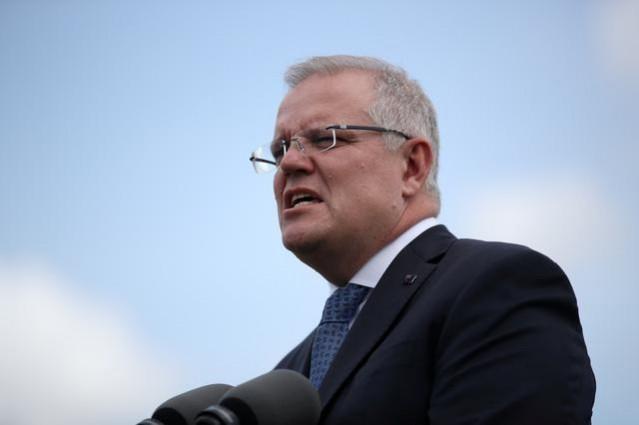When diplomatic breakdown escalates to the level of international sports, it affects nations, players and the sport itself. Regardless, within hours of Australia joining the US on diplomatic boycott of Beijing 2022 Winter Olympics, China reiterated its stance, "Mountains cannot stop the river from flowing into the sea."
Chinese embassy spokesperson in Australia also went ahead in directly lambasting the diplomatic decision of Prime Minister Scott Morrison and calling it, "political posturing."

In the statement released on Wednesday, the Chinese Embassy also said that the accountability lies on Canberra to fix the "current predicament" in ties between the two nations.
US boycotts, Australia joins in
On Monday, The White House announced its decision of U.S Government officials boycotting the Beijing Winter Olympics over China's human rights violations and atrocities. It's a move that was in the offing for several months now. President Biden's administration cited the genocide against Minority Muslims in China's region of Xinjiang for its decision. However, the American athletes will be allowed to travel to Beijing to compete.
The move immediately evoked sharp reaction from China, with China accusing the US of "betraying Olympic principles," and even threatened US of "paying a price" for its diplomatic boycott.
As for the Australian boycott, the move comes amidst already deteriorating relations between Beijing and Canberra which has seen China impose a series of trade tariffs on Australian exports. Watching its tone, the Chinese embassy further said, "Australia's success at the Beijing Winter Olympics depends on the performance of Australian athletes, not on the attendance of Australian officials."

Australian PM Morrison also said that the boycott should come as no surprise given the already deteriorating relations between two nations over the last two years.
IOC clarifies its stance
The International Olympic Committee, in the meanwhile, has taken the tricky diplomatic approach and clarified its stance on the political developments concerning Beijing Olympics. "We always ask for as much respect as possible and least possible interference from the political world," said Juan Antonio Samaranch Jr, the coordination commission chief for the Beijing Winter Olympics. In a statement that has not gone down well with many, he further said, "We have to be reciprocal. We respect the political decisions taken by political bodies."
The nations giving Beijing the royal ignore
While the US and Australia have been vocal, direct and clear in their boycott of the Beijing Olympics, several other nations have signalled their intentions of protesting against China's human rights abuses. For months now, hundreds of human rights groups have appealed the nations and political leaders to boycott the 2022 Winter Olympics.
Lithuania, too announced a diplomatic boycott of the Winter Olympics last week, while New Zealand has said that its officials will not attend due to concerns about the new strains and ongoing Covid-19 pandemic. In the same note, deputy Prime Minister Grand Robertson also said that they have made clear to China, New Zealand's concerns about human rights violations.
Meanwhile, the Telegraph reported on Wednesday, that Britain was already considering limited government attendance at the Beijing Olympics. That would be something only slightly short of a full on diplomatic boycott. How many countries do that, remains to be seen.
India, however, sided with Russia by supporting the 2022 Winter Olympic and Paralympic Games in Beijing, despite ongoing border tensions.









!['Had denied Housefull franchise as they wanted me to wear a bikini': Tia Bajpai on turning down bold scripts [Exclusive]](https://data1.ibtimes.co.in/en/full/806605/had-denied-housefull-franchise-they-wanted-me-wear-bikini-tia-bajpai-turning-down-bold.png?w=220&h=138)



